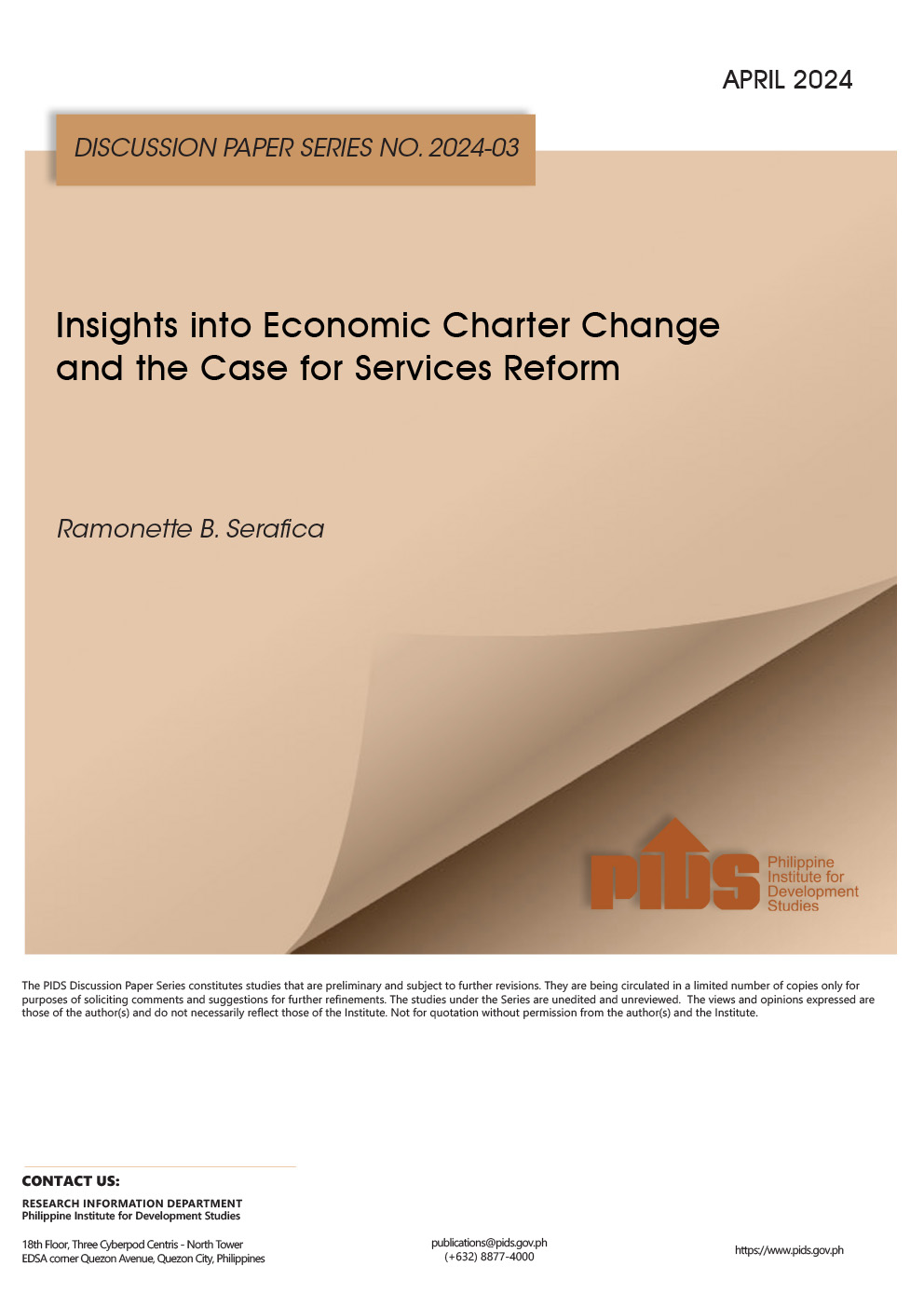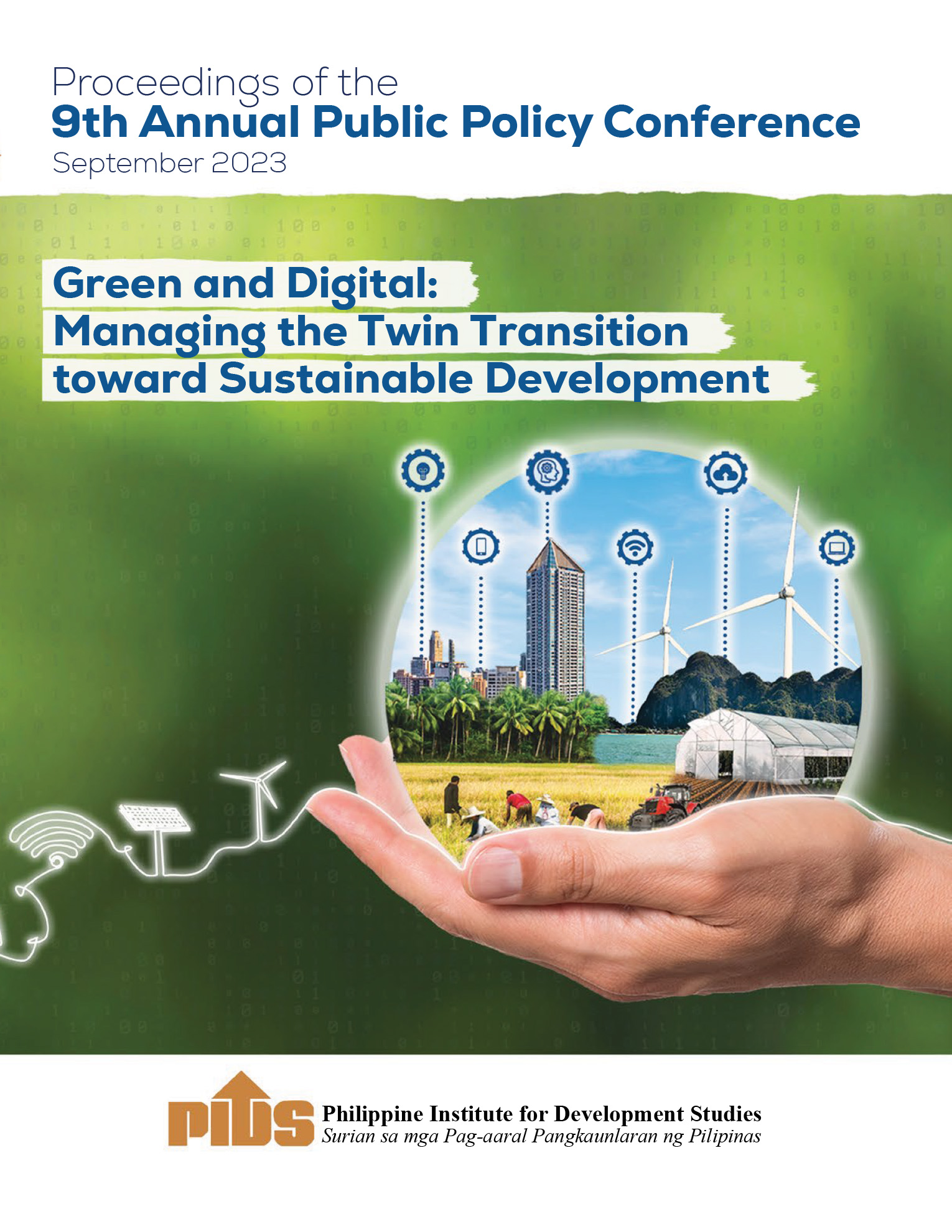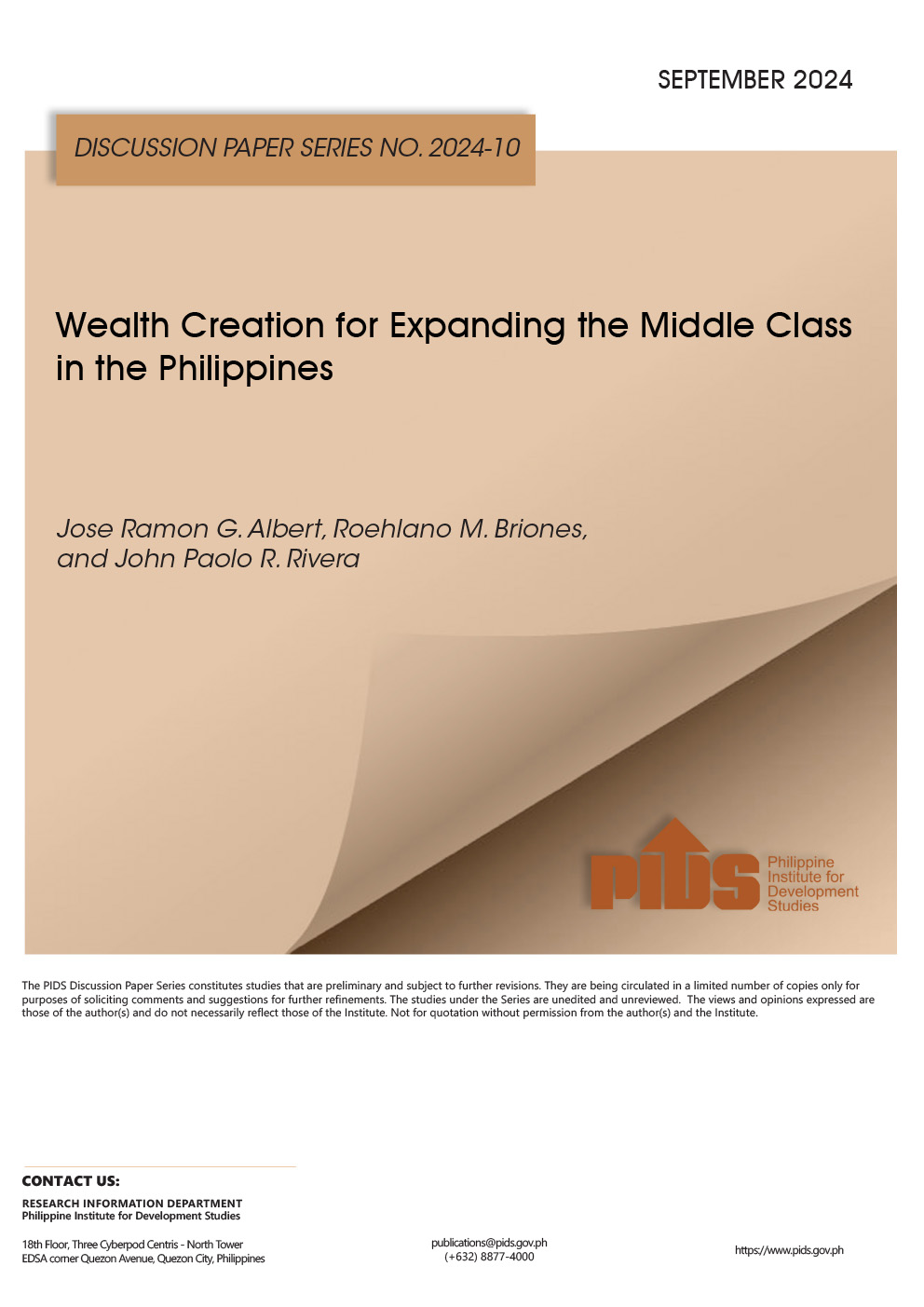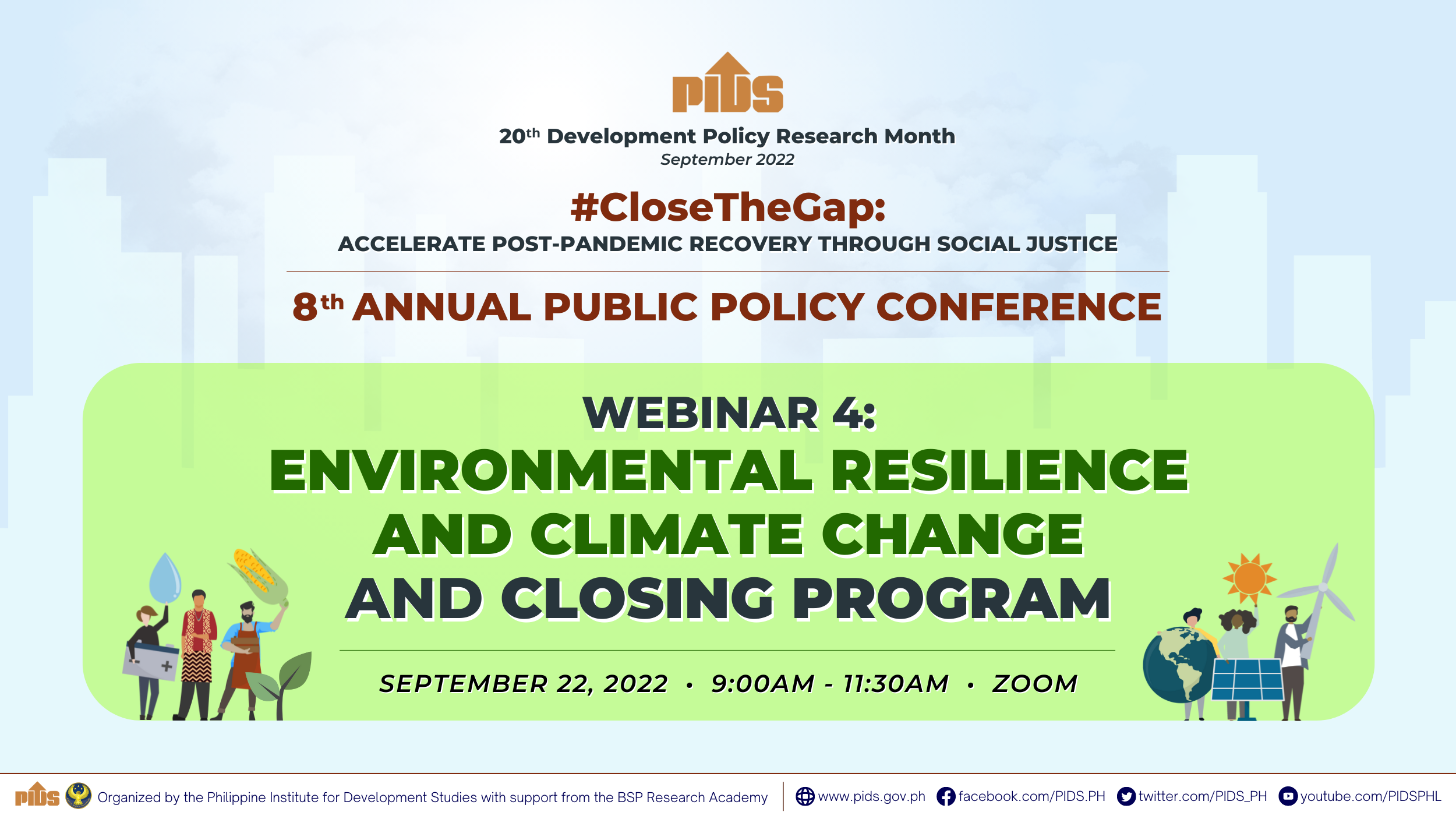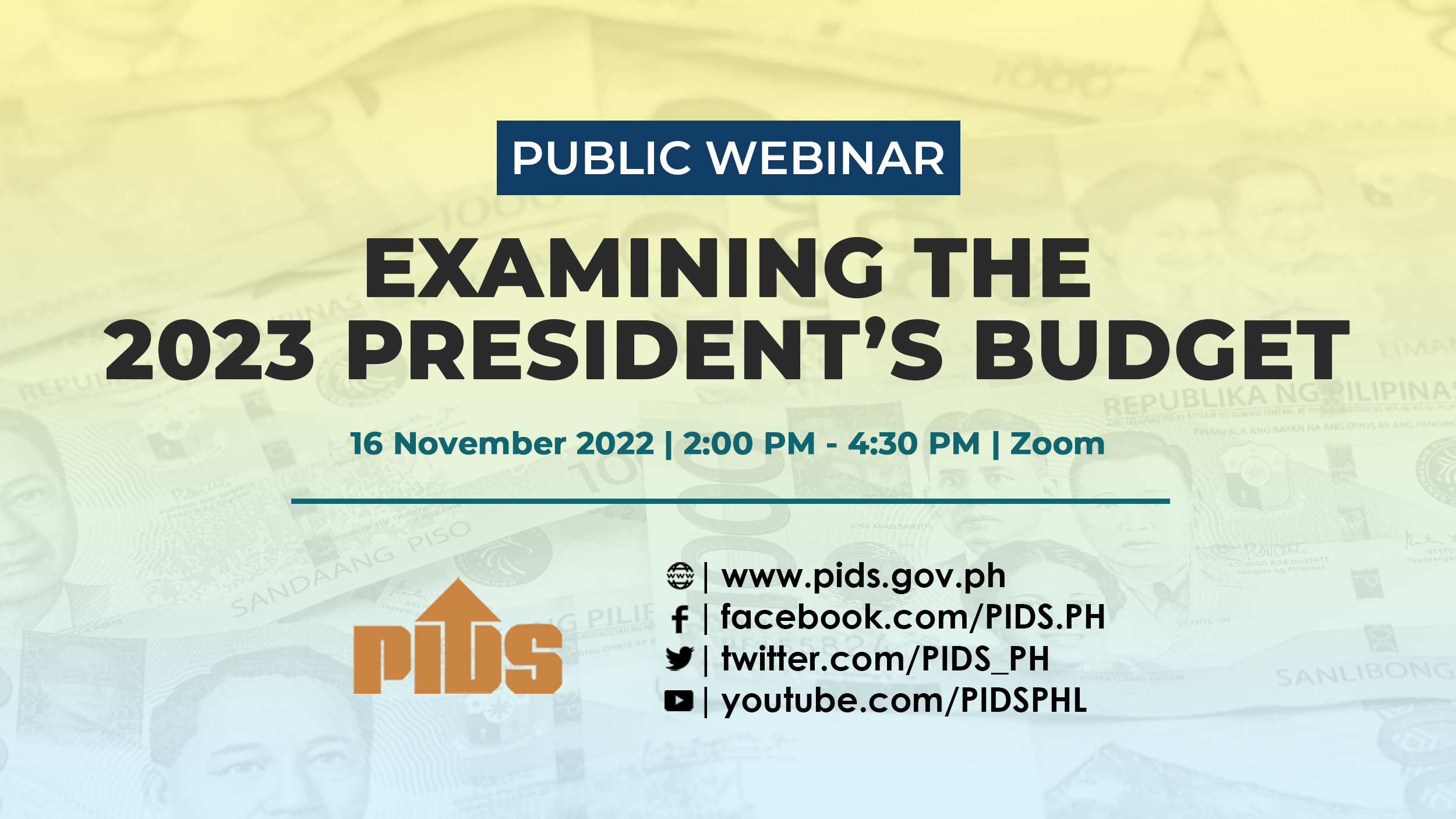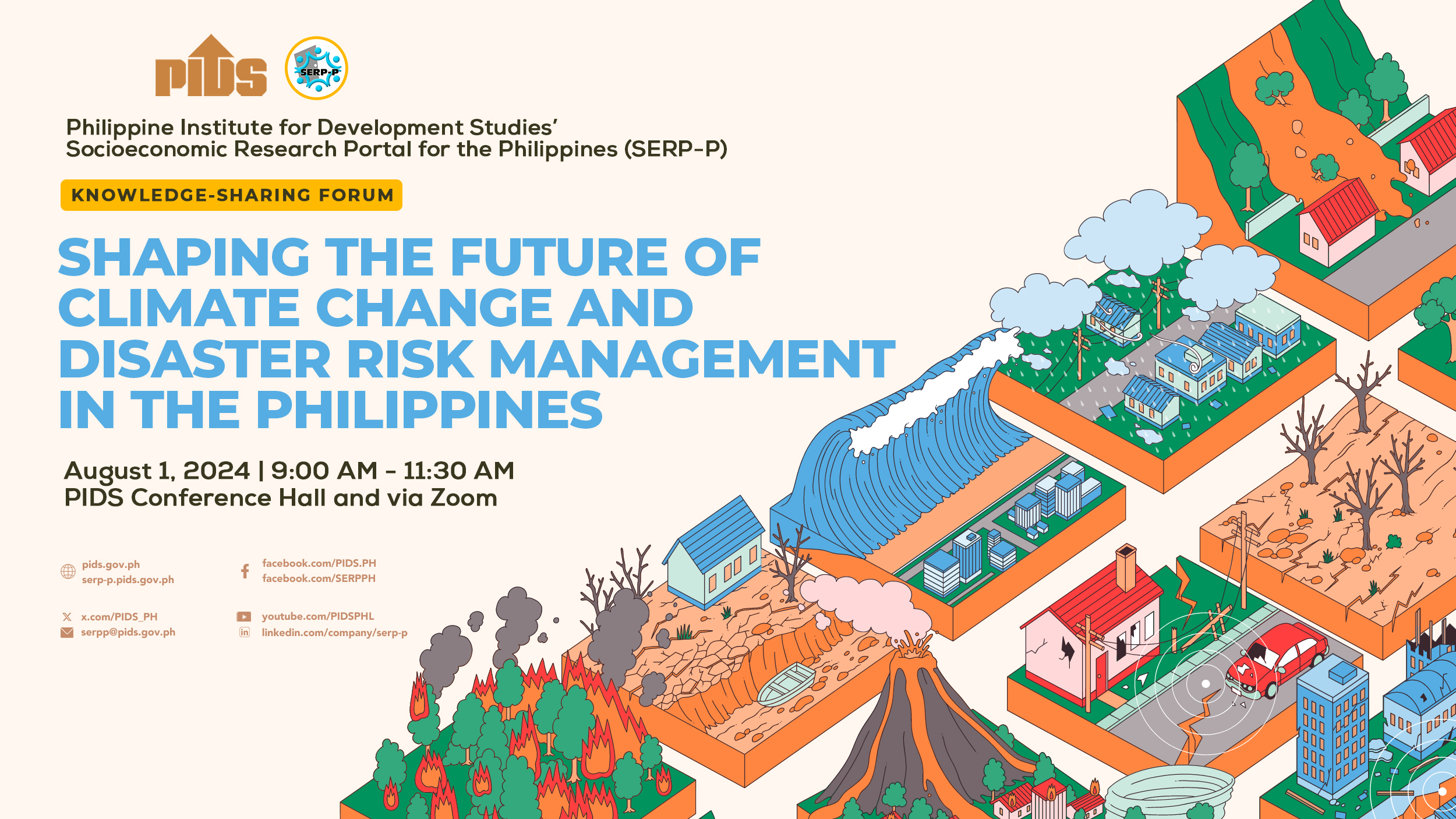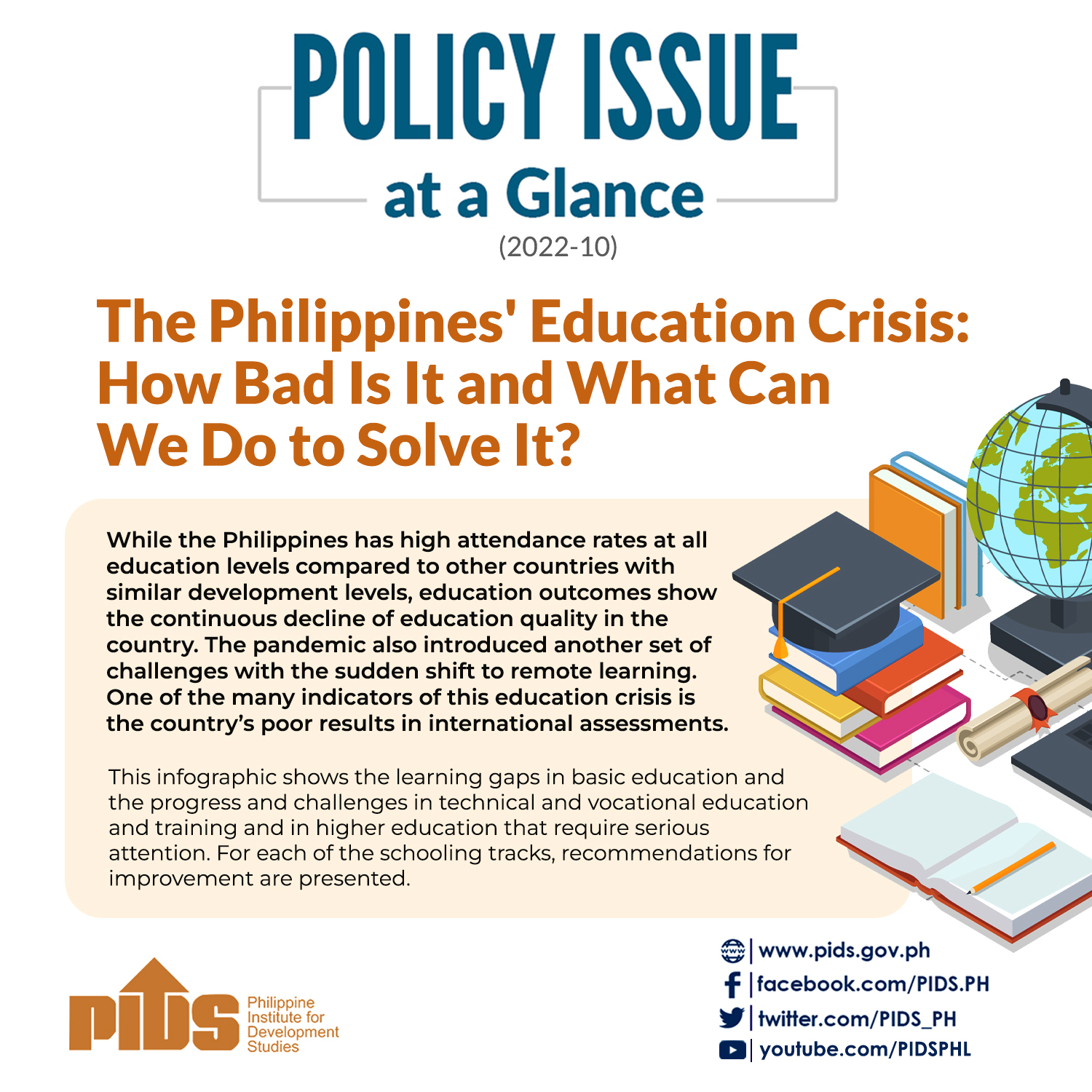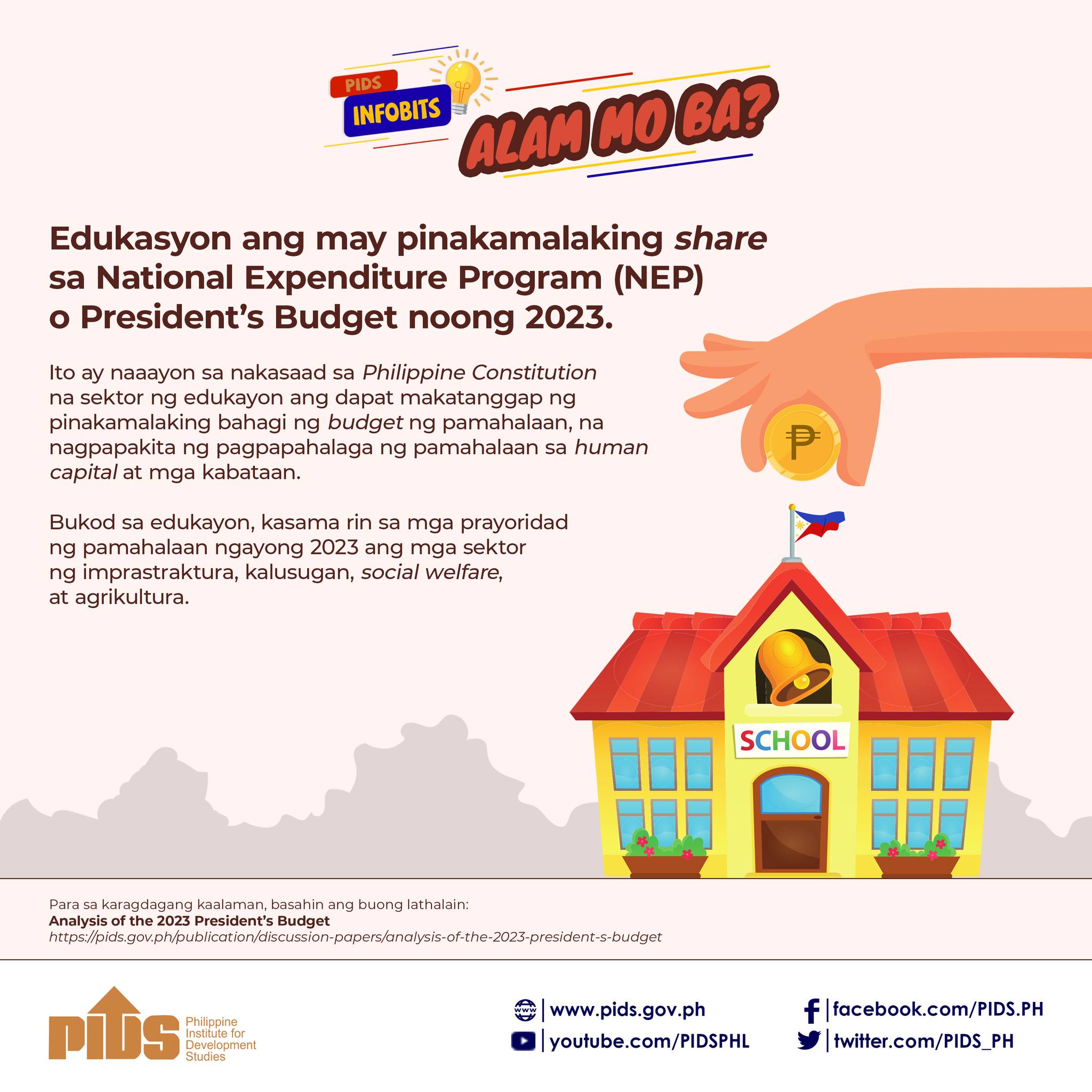By VG Cabuag, David Cagahastian, Bianca Cuaresma, Mary Grace Padin, Jovee dela Cruz, Lenie Lectura, Jonathan Mayuga, Recto Mercene, Catherine Pillas & Joel R. San Juan
NEITHER the strongest nor the most intelligent species would survive—according to Charles Darwin: “It is the one that is the most adaptable to change” that will.
Supporters cheer as presidential candidate Mayor Rodrigo R. Duterte’s campaign motorcade makes its way through the streets of Malabon on April 27.
Running on the slogan “Change is Coming,” President-elect Rodrigo R. Duterte should expect—as he is also expected—to get adapted to changes. He needs to, as Darwin said, if he seeks political survival.
And many—captains of industries, influential market players, economists and trade officials—are already expecting the changes or reforms outgoing President Aquino initiated six years ago would continue, alongside new ones that could be credited with the incoming Duterte leadership bloc.
The latter could be the amendment of the Constitution of the Republic of the Philippines that, according to Austria-born Guenter Taus, president of the European Chamber of Commerce of the Philippines (ECCP), could propel foreign direct investments to the Philippines. A resolution seeking to relax the restrictions in the Constitution failed to pass the 16th Congress, as observers said the Aquino administration was averse to changing the Constitution.
Under a Duterte administration, that may come to fruition, as his spokesman Peter Lavina has been quoted in a The Guardian article as saying the profanity-speaking President-elect “will push to rewrite the Constitution.”
A boy happily shows campaign wrist bands of presidential candidate Mayor Rodrigo R. Duterte.
“He should focus on attracting more local and foreign private-sector players to invest in many priority government infra opportunities by actively, openly pursuing the PPP [public-private partnership] modality,” Aboitiz Equity Ventures Inc. First Vice President Roman Anthony V. Azanza told the Business Mirror.
“Legislation-wise, he [President-elect Duterte] should build on the solid PPP institutional foundations set up by his predecessors, as well as pass the critical PPP [bill] into law.”
For political analyst Ramon Casiple, Duterte should push for Charter change (Cha-cha) in his first year in office.
“We’ve been telling all the new presidents about that [Cha-cha], because if you already reached half of your term and you open that up to the people, you will be accused that you want to stay in power,” Casiple, who is also the executive director of the Institute for Political and Electoral Reform (IPER), said in an interview.
“If he [Duterte] will do such major moves, like Cha-cha, on his first year, then the people will somehow be receptive of it,” he added.
However, he said, the federalism agendum being pushed by Duterte should be studied thoroughly.
“’Pag federalism kasi iba ’yun; ’yung government mismo hinati mo na. Hindi ganun kasimple. Bagong gobyerno, bagong rules,” Casiple said. “Cha-cha ka, then pag-aralan natin ang federalism.”
This legal-path trajectory is just one of the many crossroads stakeholders are putting in front of Duterte, who, as a mayor, chose to drive a taxi at night to check on the Southern Philippine capital Davao City.
PPP
THE wish list of local and foreign businessmen, government officials and groups is as long as the patience of Duterte’s naysayers with his supporters, called “Duter-tards,” on social media. On top of this list is the PPP.
Local and foreign business groups in the country underscored the need to roll out PPP projects quicker.
“I think Duterte should give focus to the PPP, make sure that the projects awarded will be finished on time, and that those in the pipeline will continue,” Philippine Chamber of Commerce and Industry (PCCI) President George T. Barcelon said in an interview over the telephone.
The Makati Business Club, (MBC) composed of the country’s largest businesses, also underscored the need for accelerated infrastructure development via the PPP Program.
“To continue the momentum, one key component may be to continue, sustain and speed up the PPP rollout, rather than review everything all over again, especially since our PPP has been recognized globally as best practice,” MBC Executive Director Peter Perfecto said.
For the foreign chambers, the passage of the PPP Act is, likewise, a “must” in order to jump-start more private investment in national infrastructure projects.
Dying
SADLY, the PPP Act is as good as dead. In an interview with the BusinessMirror in mid-April, Speaker Feliciano Belmonte Jr. admitted that the chance for Congress to pass the bill is “slim to none” due to lack of time.
Belmonte said there may be no more time for both chambers of Congress to pass the measure on third reading.
Based on the legislative calendar, Congress sessions adjourned on February 3 as part of its preparation for the May national and local elections. Sessions will resume on May 23 and end on June 10.
The two chambers will convene first as National Board of Canvassers before the approval of other pending priority bills.
When approved, the PPP Act will institutionalize the Project Development and Monitoring Facility, the PPP Governing Board and the contingent liability fund. The proposed amendments include the separation of regulatory and commercial functions of government-owned and -controlled corporations, and create a list of projects called “projects of national significance.”
By virtue of being included on the list of projects of national significance, projects will be “insulated” from local laws, among others, by local government units.
The proposed amendments also include allowing time-bound temporary restraining order, and the extension of the period for Swiss Challenge to six months, from the current two-month period.
Also, the said piece of legislation will give the executive director of the PPP Center a fixed tenure, and will, likewise, make the said body a voting member of the Investment Coordination Committee and the Cabinet Committee of the National Economic and Development Authority (Neda).
Infrastructure development
THE PPP, however, is just one of the many thorns in the shrub of ills plaguing the country’s infrastructure development.
In a text message, Management Association of the Philippines President Perry Lim Pe cited transportation infrastructure reforms as a go-to point for the incoming Duterte administration.
Faster implementation of transportation infrastructure projects was also cited by the American Chamber of Commerce of the Philippines.
“Our new president should make investing in infrastructure a top priority on both his investment and legislative agendas,” Azanza said.
He explained that these two fronts are crucial to solving the so-called infrastructure gap in the Philippines.
“Investment-wise, he should bring the many PPP deals that were already launched to bid in order to send a strong signal that the new government is committed to working with the private sector in solving our infra backlog.”
Ayala Corp. Managing Director Eric C. Francia said the company “hopes that the new President will accelerate the rollout of major infrastructure projects, especially the main international airport and mass transport.”
Liberal Party Rep. Winston Castelo of Quezon City said the Duterte administration should initiate a deliberate conscious effort to fast-track flagship infrastructure projects “to meet the people’s great expectation on his administration wanting for immediate change on his first 100 days in office.”
Philippine Institute for Development Studies (PIDS) Senior Research Fellow Adoracion Navarro said it is also important to increase the country’s public infrastructure targets to 6 percent of GDP from the current target of 5 percent.
Traffic
ATENEO de Manila University Economics professor Alvin Ang said efforts to improve infrastructure spending must also be addressed by improving the government’s absorptive capacity. This can be done by retraining employees, especially those in local governments, to speed up processing and other important functions.
There must also be strong political will in terms of using these infrastructure projects to reduce congestion in urban areas, not only in Metro Manila.
“’Yung sa Metro Manila, urban centers, kailangan ma-solve ang traffic [problem]. Kasi hindi lang infrastructure ang solution nun, administrative ’yung ibang kulang dun,” Ang said. “Kaya nga siya nanalo partly ’yung rule of law, ’yung order, so kailangan strictly ma-enforce ang order.”
Isaac S. David, the president of MTD Philippines Inc., described the country as one of the slowest in terms of infrastructure development.
“Considering that the Philippines has been lagging behind our Asean neighbors and the rest of the world in terms of infrastructure, I wish that Duterte will focus on the implementation of the much-needed infrastructure, like toll roads and expressways, mass-transport system and to decongest Metro Manila by transferring or creating a satellite national government center at Clark, which he promised during the debate,” he said.
Navarro said the Duterte administration can also implement potentially controversial reforms, such as a comprehensive urban bus-transport policy in Metro Manila.
She suggested that the government implement an arterial-feeder bus-transport route in Metro Manila and consolidate bus operations into fewer companies with enough buses.
“The scheme might encounter resistance from existing bus companies and result in commuters’ complaints about the inconvenience of or confusion in transfers between arterial and feeder routes, so advance information campaign will be needed,” she added.
Taxes
OTHER than the constitutional amendment, tax reform is on the priority list of foreign businessmen grouped under the ECCP. The ECCP said reforms should address both the personal income and corporate income tax.
“We would like to see the new government to act on comprehensive tax reform in the following months,” Taus said in his reply to questions sent via electronic mail. “Tax reform that lowers corporate income tax to a more internationally competitive level and lessens the burden on employers and employees by reducing and aligning personal income-tax brackets to current salary ranges.”
House Committee on Ways and Means Chairman and Liberal Party Rep. Romero Quimbo of Marikina City said lowering individual and corporate income-tax rates should be prioritized in the next government.
“Besides addressing criminality, the next government should study tax reform,” Quimbo added.
Duterte earlier said he doesn’t favor lowering individual and corporate tax rates, adding he needs funds for the government infrastructure projects.
But mining industry’s big players under the Chamber of Mines of the Philippines recommend the deferral of the proposal to increase taxes in mining pending the government’s comprehensive tax reform.
Pids’s Navarro said there is a need to implement a comprehensive tax and customs-reform program that can substantially increase revenues by around 20 percent of GDP.
Reit
TAX is also an issue with the Real Estate Investment Trust (Reit) law. The country’s tax authorities are subjecting to a 12-percent value added tax (Vat) a Reit company. There’s also a one-time tax to be able to set up a Reit company.
Philippine Stock Exchange Inc.’s Chief Operating Officer Roel Refran said in other countries, they did not subject to sales tax the Reit, since there’s already the one-time tax.
“We’re not [re]inventing the wheel,” Refran told the BusinessMirror. “This is used in Japan, Australia, Singapore and in the US. And it’s not going to be a legislative amendment, because that’s hard to do. It’s just going to be the IRR [amendment to the implementing rules and regulations], and also the appropriate SEC [Securities and Exchange Commission] memo circular.”
The Bureau of Internal Revenue earlier said the IRR for the Reit is fair, and tough measures were placed to ensure the private sector would not unduly benefit from the Reit’s real purpose of recycling capital.
IRR
REFRAN said he wants the incoming administration to revisit the IRR for the Reit products.
“When it [REIT] was implemented, there were additional requirements [that], when you look at the law, it did not provide such a high bar.”
Refran said, for instance, the law states that the Reit shall be a public company with an ownership of just 33 percent. When the IRR was implemented, it placed an additional requirement that states over a three- to four-year period, the Reit should be owned by at least 66 percent, or two-thirds, of the public.
The Reit law was enacted in 2009, with the main aim of promoting the development of the capital market, broadening the participation of the public in the ownership of real estate in the Philippines; and use the capital market as an instrument to help finance and develop infrastructure projects.
The IRR of the said law, however, was crafted by the Aquino economic team.
The law was designed to recycle real-estate assets by placing them in another Reit company in which the public can invest into by purchasing shares. The shares of the company can also be traded at the PSE.
These property firms may not be big firms, such as Ayala Land Inc. and SM Prime Holdings Inc. A Reit can also be a simple parking-lot operator, expressways that exact toll on their users, prison facilities and airports.
Construction
THE country’s construction industry, meanwhile, said it will introduce to the next administration the building of “instant flyovers.” These are city bridges using modular systems or prefabricated materials that could be placed in congested areas of Metro Manila and parts of the country as part of a solution to the worsening traffic situation.
Jorge Consunji, president and COO of DM Consunji Inc., said the members of the Philippine Constructors Association (PCA) may push to the next administration the use of new technology in building flyovers.
DM Consunji Inc. is the construction arm of conglomerate DMCI Holdings Inc.
As a rule of thumb, using the new technology may cut construction time by 30 percent, and the bridge can also last by at least 20 years. It costs about P1.2 billion per kilometer to build one.
During former President Gloria Macapagal-Arroyo’s administration, the government purchased several modular system or prefabricated flyovers that were meant to be put up in heavy-traffic areas in Metro Manila. One such area targeted was Katipunan Avenue in Quezon City, where two major colleges are located.
These were, however, set aside and not utilized by the Aquino administration.
The PCA may just ask the next administration to utilize these materials for the project, Consunji said in a news briefing.
“We [DM Consunji Inc.], along with all the other member-contractors at PCA, are prepared to offer this technology to the next administration. It is high time that worsening traffic condition in Metro Manila be addressed as promptly as possible,” Consunji, a former PCA president, said.
“Given a chance, our association would like to propose this new technology. Although it’s more expensive versus the construction of conventional flyovers, this technology promises to improve the traffic condition in Metro Manila.”
A conventional flyover takes about 18 months to complete.
Delays in construction, however, are caused by the right-of-way issues and the transfer of utility wires, cables and pipes buried under the ground.
Consunji said these are some of the issues they hope could be addressed by the incoming government.
Economists
ALL the tough talk from the Duterte camp in the months leading to last Monday’s polls may be put to the test as local economists weigh in on the policies needed to push the economy forward.
Economists interviewed by the BusinessMirror highlighted the need to promote regulatory reform, the importance of agriculture and research and development, and a focus on urban planning.
“There is no dearth in good policy prescriptions. What is lacking is implementation of policies. [I] hope that the Duterte administration can put a spark in the implementation phase,” University of Asia and the Pacific School of Economics Vice Dean George Manzano said.
Manzano’s economic wish list included investor-friendly policies, such as following the rule of law, honoring the sanctity of contracts, promoting transparency of processes, and liberalizing the investment regime.
He also urged the expansion of investments in energy by facilitating investments in renewable energy and power, as well as the creation of clear regulations in the sector.
Agriculture
MANZANO also urged the Duterte administration to shift to higher-value agriculture, as well as credit and technology transfer. He added that the government’s rice policy must be reviewed, and efforts must be increased to clamp down on smuggling.
Supporting the agriculture sector, PIDS’s Navarro said, can be done by setting a macro target of 1 percent of GDP for research and development.
Encouraging R&D, as well as innovations, can help the agribusinesses and small and medium enterprises (SMEs) improve and diversify their products.
Eagle Watch senior fellow Alvin Ang said the Duterte administration needs to increase infrastructure spending because it has the potential to solve the country’s employment woes, particularly in agriculture.
Samahang Industriya ng Agrikultura (SINAG) Executive Director Jayson Cainglet told the BusinessMirror farmers are expecting Duterte to achieve what President Aquino has failed to do in the past six years of his term.
“Because we feel like the incumbent administration has flopped in advancing Philippine agriculture, farmers will really expect major changes during Duterte’s term,” he said in a phone interview. “We’re hoping this time the administration won’t fail us.”
Cainglet added that as someone coming from Mindanao, Duterte should truly understand the challenges faced by the agricultural sector.
He said Sinag is counting on Duterte to address issues, such as smuggling, access to credit, and free irrigation services.
Neglected
PHILIPPINE Maize Federation Inc. (PhilMaize) President Roger Navarro also called on the incoming administration to focus its efforts on the agriculture sector.
“We hope that this time, the government will really focus on agriculture, because this sector has long been neglected in our country.”
PhilMaize’s Navarro added that there is a need to implement policy reforms—particularly those that involve production, trade and export—and rationalize the distribution of the Department of Agriculture’s (DA) budget.
“We know for a fact that the bulk of the budget for agriculture is mostly given to Luzon, then about 35 percent is divided between the Visayas and Mindanao,” Navarro explained. “It should change, especially that the new president will be from Mindanao.”
United Broilers Raisers Association President Elias Jose Inciong, for his part, said the next administration’s thrust should be in promoting climate-change resiliency and sustainability.
“If [the Duterte administration] can address the challenges brought about by climate change, especially on water supply and distribution, that would be a major and long-term achievement,” he said.
Water, the industry leader said, is a basic necessity, especially for crops.
“It may not affect [poultry and livestock growers] directly and immediately, but if you do not address the issue on water, where will you get your feeds for your poultry and livestock? If you address that, you address sustainability already,” he ended.
Poverty reduction among fishermen should also be a focal point of government efforts, nongovernmental organization Tambuyog Development Center Inc. (TDC) insisted.
TDC Executive Director Arsenio Tanchuling said stopping illegal fishing, implementing the Comprehensive National Fisheries Industry Development Plan 2016-2020, and providing settlement areas for fishermen near their fishing grounds would be crucial in uplifting the lives of fishermen.
According to Agriculture Undersecretary Emerson Palad, the DA has already prepared a transition team that will present to the next agriculture secretary the agency’s programs and recommendations. “We will brief the new secretary and his or her team regarding what the agency has achieved, what programs became successful, which programs need adjustment, among others. We have to discuss it with them so that the transition will become smooth and seamless.”//
NEITHER the strongest nor the most intelligent species would survive—according to Charles Darwin: “It is the one that is the most adaptable to change” that will.
Supporters cheer as presidential candidate Mayor Rodrigo R. Duterte’s campaign motorcade makes its way through the streets of Malabon on April 27.
Running on the slogan “Change is Coming,” President-elect Rodrigo R. Duterte should expect—as he is also expected—to get adapted to changes. He needs to, as Darwin said, if he seeks political survival.
And many—captains of industries, influential market players, economists and trade officials—are already expecting the changes or reforms outgoing President Aquino initiated six years ago would continue, alongside new ones that could be credited with the incoming Duterte leadership bloc.
The latter could be the amendment of the Constitution of the Republic of the Philippines that, according to Austria-born Guenter Taus, president of the European Chamber of Commerce of the Philippines (ECCP), could propel foreign direct investments to the Philippines. A resolution seeking to relax the restrictions in the Constitution failed to pass the 16th Congress, as observers said the Aquino administration was averse to changing the Constitution.
Under a Duterte administration, that may come to fruition, as his spokesman Peter Lavina has been quoted in a The Guardian article as saying the profanity-speaking President-elect “will push to rewrite the Constitution.”
A boy happily shows campaign wrist bands of presidential candidate Mayor Rodrigo R. Duterte.
“He should focus on attracting more local and foreign private-sector players to invest in many priority government infra opportunities by actively, openly pursuing the PPP [public-private partnership] modality,” Aboitiz Equity Ventures Inc. First Vice President Roman Anthony V. Azanza told the Business Mirror.
“Legislation-wise, he [President-elect Duterte] should build on the solid PPP institutional foundations set up by his predecessors, as well as pass the critical PPP [bill] into law.”
For political analyst Ramon Casiple, Duterte should push for Charter change (Cha-cha) in his first year in office.
“We’ve been telling all the new presidents about that [Cha-cha], because if you already reached half of your term and you open that up to the people, you will be accused that you want to stay in power,” Casiple, who is also the executive director of the Institute for Political and Electoral Reform (IPER), said in an interview.
“If he [Duterte] will do such major moves, like Cha-cha, on his first year, then the people will somehow be receptive of it,” he added.
However, he said, the federalism agendum being pushed by Duterte should be studied thoroughly.
“’Pag federalism kasi iba ’yun; ’yung government mismo hinati mo na. Hindi ganun kasimple. Bagong gobyerno, bagong rules,” Casiple said. “Cha-cha ka, then pag-aralan natin ang federalism.”
This legal-path trajectory is just one of the many crossroads stakeholders are putting in front of Duterte, who, as a mayor, chose to drive a taxi at night to check on the Southern Philippine capital Davao City.
PPP
THE wish list of local and foreign businessmen, government officials and groups is as long as the patience of Duterte’s naysayers with his supporters, called “Duter-tards,” on social media. On top of this list is the PPP.
Local and foreign business groups in the country underscored the need to roll out PPP projects quicker.
“I think Duterte should give focus to the PPP, make sure that the projects awarded will be finished on time, and that those in the pipeline will continue,” Philippine Chamber of Commerce and Industry (PCCI) President George T. Barcelon said in an interview over the telephone.
The Makati Business Club, (MBC) composed of the country’s largest businesses, also underscored the need for accelerated infrastructure development via the PPP Program.
“To continue the momentum, one key component may be to continue, sustain and speed up the PPP rollout, rather than review everything all over again, especially since our PPP has been recognized globally as best practice,” MBC Executive Director Peter Perfecto said.
For the foreign chambers, the passage of the PPP Act is, likewise, a “must” in order to jump-start more private investment in national infrastructure projects.
Dying
SADLY, the PPP Act is as good as dead. In an interview with the BusinessMirror in mid-April, Speaker Feliciano Belmonte Jr. admitted that the chance for Congress to pass the bill is “slim to none” due to lack of time.
Belmonte said there may be no more time for both chambers of Congress to pass the measure on third reading.
Based on the legislative calendar, Congress sessions adjourned on February 3 as part of its preparation for the May national and local elections. Sessions will resume on May 23 and end on June 10.
The two chambers will convene first as National Board of Canvassers before the approval of other pending priority bills.
When approved, the PPP Act will institutionalize the Project Development and Monitoring Facility, the PPP Governing Board and the contingent liability fund. The proposed amendments include the separation of regulatory and commercial functions of government-owned and -controlled corporations, and create a list of projects called “projects of national significance.”
By virtue of being included on the list of projects of national significance, projects will be “insulated” from local laws, among others, by local government units.
The proposed amendments also include allowing time-bound temporary restraining order, and the extension of the period for Swiss Challenge to six months, from the current two-month period.
Also, the said piece of legislation will give the executive director of the PPP Center a fixed tenure, and will, likewise, make the said body a voting member of the Investment Coordination Committee and the Cabinet Committee of the National Economic and Development Authority (Neda).
Infrastructure development
THE PPP, however, is just one of the many thorns in the shrub of ills plaguing the country’s infrastructure development.
In a text message, Management Association of the Philippines President Perry Lim Pe cited transportation infrastructure reforms as a go-to point for the incoming Duterte administration.
Faster implementation of transportation infrastructure projects was also cited by the American Chamber of Commerce of the Philippines.
“Our new president should make investing in infrastructure a top priority on both his investment and legislative agendas,” Azanza said.
He explained that these two fronts are crucial to solving the so-called infrastructure gap in the Philippines.
“Investment-wise, he should bring the many PPP deals that were already launched to bid in order to send a strong signal that the new government is committed to working with the private sector in solving our infra backlog.”
Ayala Corp. Managing Director Eric C. Francia said the company “hopes that the new President will accelerate the rollout of major infrastructure projects, especially the main international airport and mass transport.”
Liberal Party Rep. Winston Castelo of Quezon City said the Duterte administration should initiate a deliberate conscious effort to fast-track flagship infrastructure projects “to meet the people’s great expectation on his administration wanting for immediate change on his first 100 days in office.”
Philippine Institute for Development Studies (PIDS) Senior Research Fellow Adoracion Navarro said it is also important to increase the country’s public infrastructure targets to 6 percent of GDP from the current target of 5 percent.
Traffic
ATENEO de Manila University Economics professor Alvin Ang said efforts to improve infrastructure spending must also be addressed by improving the government’s absorptive capacity. This can be done by retraining employees, especially those in local governments, to speed up processing and other important functions.
There must also be strong political will in terms of using these infrastructure projects to reduce congestion in urban areas, not only in Metro Manila.
“’Yung sa Metro Manila, urban centers, kailangan ma-solve ang traffic [problem]. Kasi hindi lang infrastructure ang solution nun, administrative ’yung ibang kulang dun,” Ang said. “Kaya nga siya nanalo partly ’yung rule of law, ’yung order, so kailangan strictly ma-enforce ang order.”
Isaac S. David, the president of MTD Philippines Inc., described the country as one of the slowest in terms of infrastructure development.
“Considering that the Philippines has been lagging behind our Asean neighbors and the rest of the world in terms of infrastructure, I wish that Duterte will focus on the implementation of the much-needed infrastructure, like toll roads and expressways, mass-transport system and to decongest Metro Manila by transferring or creating a satellite national government center at Clark, which he promised during the debate,” he said.
Navarro said the Duterte administration can also implement potentially controversial reforms, such as a comprehensive urban bus-transport policy in Metro Manila.
She suggested that the government implement an arterial-feeder bus-transport route in Metro Manila and consolidate bus operations into fewer companies with enough buses.
“The scheme might encounter resistance from existing bus companies and result in commuters’ complaints about the inconvenience of or confusion in transfers between arterial and feeder routes, so advance information campaign will be needed,” she added.
Taxes
OTHER than the constitutional amendment, tax reform is on the priority list of foreign businessmen grouped under the ECCP. The ECCP said reforms should address both the personal income and corporate income tax.
“We would like to see the new government to act on comprehensive tax reform in the following months,” Taus said in his reply to questions sent via electronic mail. “Tax reform that lowers corporate income tax to a more internationally competitive level and lessens the burden on employers and employees by reducing and aligning personal income-tax brackets to current salary ranges.”
House Committee on Ways and Means Chairman and Liberal Party Rep. Romero Quimbo of Marikina City said lowering individual and corporate income-tax rates should be prioritized in the next government.
“Besides addressing criminality, the next government should study tax reform,” Quimbo added.
Duterte earlier said he doesn’t favor lowering individual and corporate tax rates, adding he needs funds for the government infrastructure projects.
But mining industry’s big players under the Chamber of Mines of the Philippines recommend the deferral of the proposal to increase taxes in mining pending the government’s comprehensive tax reform.
Pids’s Navarro said there is a need to implement a comprehensive tax and customs-reform program that can substantially increase revenues by around 20 percent of GDP.
Reit
TAX is also an issue with the Real Estate Investment Trust (Reit) law. The country’s tax authorities are subjecting to a 12-percent value added tax (Vat) a Reit company. There’s also a one-time tax to be able to set up a Reit company.
Philippine Stock Exchange Inc.’s Chief Operating Officer Roel Refran said in other countries, they did not subject to sales tax the Reit, since there’s already the one-time tax.
“We’re not [re]inventing the wheel,” Refran told the BusinessMirror. “This is used in Japan, Australia, Singapore and in the US. And it’s not going to be a legislative amendment, because that’s hard to do. It’s just going to be the IRR [amendment to the implementing rules and regulations], and also the appropriate SEC [Securities and Exchange Commission] memo circular.”
The Bureau of Internal Revenue earlier said the IRR for the Reit is fair, and tough measures were placed to ensure the private sector would not unduly benefit from the Reit’s real purpose of recycling capital.
IRR
REFRAN said he wants the incoming administration to revisit the IRR for the Reit products.
“When it [REIT] was implemented, there were additional requirements [that], when you look at the law, it did not provide such a high bar.”
Refran said, for instance, the law states that the Reit shall be a public company with an ownership of just 33 percent. When the IRR was implemented, it placed an additional requirement that states over a three- to four-year period, the Reit should be owned by at least 66 percent, or two-thirds, of the public.
The Reit law was enacted in 2009, with the main aim of promoting the development of the capital market, broadening the participation of the public in the ownership of real estate in the Philippines; and use the capital market as an instrument to help finance and develop infrastructure projects.
The IRR of the said law, however, was crafted by the Aquino economic team.
The law was designed to recycle real-estate assets by placing them in another Reit company in which the public can invest into by purchasing shares. The shares of the company can also be traded at the PSE.
These property firms may not be big firms, such as Ayala Land Inc. and SM Prime Holdings Inc. A Reit can also be a simple parking-lot operator, expressways that exact toll on their users, prison facilities and airports.
Construction
THE country’s construction industry, meanwhile, said it will introduce to the next administration the building of “instant flyovers.” These are city bridges using modular systems or prefabricated materials that could be placed in congested areas of Metro Manila and parts of the country as part of a solution to the worsening traffic situation.
Jorge Consunji, president and COO of DM Consunji Inc., said the members of the Philippine Constructors Association (PCA) may push to the next administration the use of new technology in building flyovers.
DM Consunji Inc. is the construction arm of conglomerate DMCI Holdings Inc.
As a rule of thumb, using the new technology may cut construction time by 30 percent, and the bridge can also last by at least 20 years. It costs about P1.2 billion per kilometer to build one.
During former President Gloria Macapagal-Arroyo’s administration, the government purchased several modular system or prefabricated flyovers that were meant to be put up in heavy-traffic areas in Metro Manila. One such area targeted was Katipunan Avenue in Quezon City, where two major colleges are located.
These were, however, set aside and not utilized by the Aquino administration.
The PCA may just ask the next administration to utilize these materials for the project, Consunji said in a news briefing.
“We [DM Consunji Inc.], along with all the other member-contractors at PCA, are prepared to offer this technology to the next administration. It is high time that worsening traffic condition in Metro Manila be addressed as promptly as possible,” Consunji, a former PCA president, said.
“Given a chance, our association would like to propose this new technology. Although it’s more expensive versus the construction of conventional flyovers, this technology promises to improve the traffic condition in Metro Manila.”
A conventional flyover takes about 18 months to complete.
Delays in construction, however, are caused by the right-of-way issues and the transfer of utility wires, cables and pipes buried under the ground.
Consunji said these are some of the issues they hope could be addressed by the incoming government.
Economists
ALL the tough talk from the Duterte camp in the months leading to last Monday’s polls may be put to the test as local economists weigh in on the policies needed to push the economy forward.
Economists interviewed by the BusinessMirror highlighted the need to promote regulatory reform, the importance of agriculture and research and development, and a focus on urban planning.
“There is no dearth in good policy prescriptions. What is lacking is implementation of policies. [I] hope that the Duterte administration can put a spark in the implementation phase,” University of Asia and the Pacific School of Economics Vice Dean George Manzano said.
Manzano’s economic wish list included investor-friendly policies, such as following the rule of law, honoring the sanctity of contracts, promoting transparency of processes, and liberalizing the investment regime.
He also urged the expansion of investments in energy by facilitating investments in renewable energy and power, as well as the creation of clear regulations in the sector.
Agriculture
MANZANO also urged the Duterte administration to shift to higher-value agriculture, as well as credit and technology transfer. He added that the government’s rice policy must be reviewed, and efforts must be increased to clamp down on smuggling.
Supporting the agriculture sector, PIDS’s Navarro said, can be done by setting a macro target of 1 percent of GDP for research and development.
Encouraging R&D, as well as innovations, can help the agribusinesses and small and medium enterprises (SMEs) improve and diversify their products.
Eagle Watch senior fellow Alvin Ang said the Duterte administration needs to increase infrastructure spending because it has the potential to solve the country’s employment woes, particularly in agriculture.
Samahang Industriya ng Agrikultura (SINAG) Executive Director Jayson Cainglet told the BusinessMirror farmers are expecting Duterte to achieve what President Aquino has failed to do in the past six years of his term.
“Because we feel like the incumbent administration has flopped in advancing Philippine agriculture, farmers will really expect major changes during Duterte’s term,” he said in a phone interview. “We’re hoping this time the administration won’t fail us.”
Cainglet added that as someone coming from Mindanao, Duterte should truly understand the challenges faced by the agricultural sector.
He said Sinag is counting on Duterte to address issues, such as smuggling, access to credit, and free irrigation services.
Neglected
PHILIPPINE Maize Federation Inc. (PhilMaize) President Roger Navarro also called on the incoming administration to focus its efforts on the agriculture sector.
“We hope that this time, the government will really focus on agriculture, because this sector has long been neglected in our country.”
PhilMaize’s Navarro added that there is a need to implement policy reforms—particularly those that involve production, trade and export—and rationalize the distribution of the Department of Agriculture’s (DA) budget.
“We know for a fact that the bulk of the budget for agriculture is mostly given to Luzon, then about 35 percent is divided between the Visayas and Mindanao,” Navarro explained. “It should change, especially that the new president will be from Mindanao.”
United Broilers Raisers Association President Elias Jose Inciong, for his part, said the next administration’s thrust should be in promoting climate-change resiliency and sustainability.
“If [the Duterte administration] can address the challenges brought about by climate change, especially on water supply and distribution, that would be a major and long-term achievement,” he said.
Water, the industry leader said, is a basic necessity, especially for crops.
“It may not affect [poultry and livestock growers] directly and immediately, but if you do not address the issue on water, where will you get your feeds for your poultry and livestock? If you address that, you address sustainability already,” he ended.
Poverty reduction among fishermen should also be a focal point of government efforts, nongovernmental organization Tambuyog Development Center Inc. (TDC) insisted.
TDC Executive Director Arsenio Tanchuling said stopping illegal fishing, implementing the Comprehensive National Fisheries Industry Development Plan 2016-2020, and providing settlement areas for fishermen near their fishing grounds would be crucial in uplifting the lives of fishermen.
According to Agriculture Undersecretary Emerson Palad, the DA has already prepared a transition team that will present to the next agriculture secretary the agency’s programs and recommendations. “We will brief the new secretary and his or her team regarding what the agency has achieved, what programs became successful, which programs need adjustment, among others. We have to discuss it with them so that the transition will become smooth and seamless.”//

